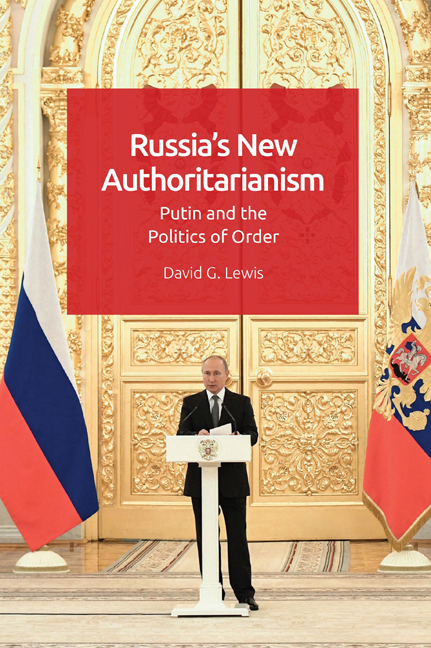Book contents
- Frontmatter
- Contents
- Preface
- Acknowledgements
- Note on Transliteration and Translation
- One Authoritarianism, Ideology and Order
- Two Carl Schmitt and Russian Conservatism
- Three Sovereignty and the Exception
- Four Democracy and the People
- Five Defining the Enemy
- Six Dualism, Exceptionality and the Rule of Law
- Seven The Crimean Exception
- Eight Großraum Thinking in Russian Foreign Policy
- Nine Apocalypse Delayed: Katechontic Thinking in Late Putinist Russia
- Conclusion
- Bibliography
- Index
Preface
- Frontmatter
- Contents
- Preface
- Acknowledgements
- Note on Transliteration and Translation
- One Authoritarianism, Ideology and Order
- Two Carl Schmitt and Russian Conservatism
- Three Sovereignty and the Exception
- Four Democracy and the People
- Five Defining the Enemy
- Six Dualism, Exceptionality and the Rule of Law
- Seven The Crimean Exception
- Eight Großraum Thinking in Russian Foreign Policy
- Nine Apocalypse Delayed: Katechontic Thinking in Late Putinist Russia
- Conclusion
- Bibliography
- Index
Summary
Post-Soviet Russia is the most significant case study of the struggle between democracy and authoritarianism in the post-Cold War world. The regime headed by Vladimir Putin after 2000 has often been studied as an isolated case – explained by Russia's troubled political history, its limited experience of democracy, the kleptocracy of its business elites, or the legacy of seventy years of Soviet rule. Yet twenty-first-century Russia also developed a new version of authoritarian politics with much wider international resonance. In many countries around the world – from Budapest to Beijing – many familiar elements of ‘Putinist’ politics could be identified in the first two decades of the twenty-first century. Understanding the nature of ‘Putinism’ became critical for understanding wider trends in global politics, and the rise of a new wave of authoritarian and illiberal regimes.
The rise of illiberal politics simultaneously in many parts of the world in the 2010s suggests that Russia's political development under Putin should be understood as part of a broader global backlash against liberal ideas and liberal order. This reaction took multiple forms, ranging from radical Islamist movements in the Middle East to left-wing populist movements in Europe. But the most significant trend has been towards forms of radical conservatism, which have produced right-wing populist movements in parts of the West, and authoritarian regimes in many countries in Eastern Europe, Africa and Asia. Disparate in form, in leadership and in vision, these political trends nevertheless had much in common in their worldviews and ideological frames. They shared, above all, a profound rejection of a form of liberal internationalism that had come to dominate global discourse and global institutions in the post-Cold War world.
These political movements were not only ranged against modern liberalism and its proxies, but they also began to coalesce around emergent alternative visions of both domestic and international order. They rejected the claim that the international system was a benign form of liberal international order, a rules-based system that ultimately benefited all. Illiberal movements and authoritarian political leaders rejected universal values, such as human rights, and instead advocated essentialised national or religious cultures and principles.
- Type
- Chapter
- Information
- Russia's New AuthoritarianismPutin and the Politics of Order, pp. vii - xiiiPublisher: Edinburgh University PressPrint publication year: 2020



